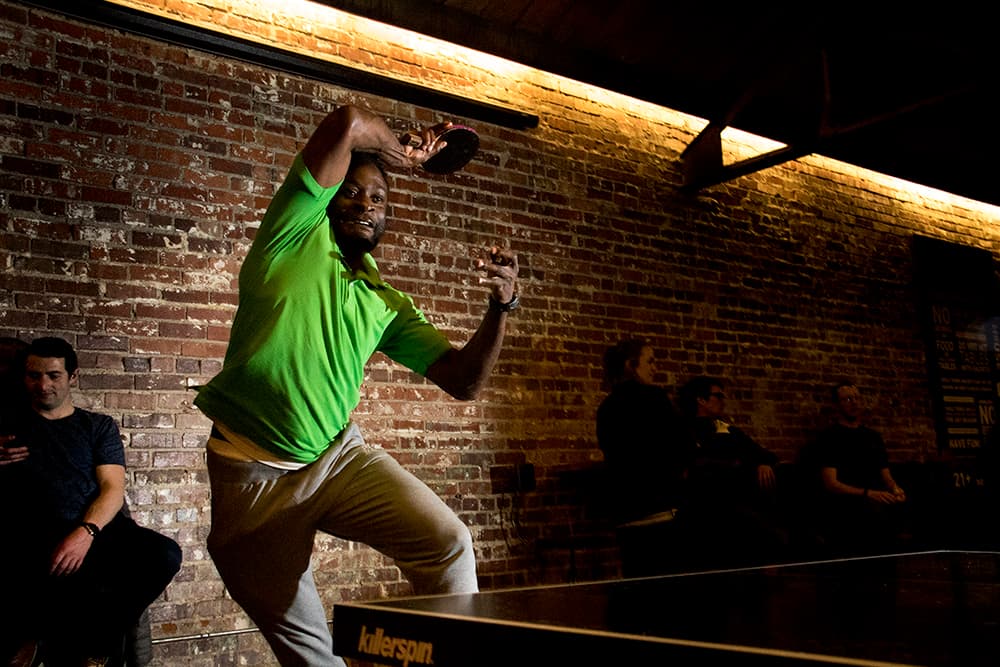
Last year, somewhere in the jungles of Honduras, a dozen horses led by a smuggler walked single-file through the trees. The travelers following him had come all this way from Africa. Now they were heading north in hopes of reaching the U.S. border to claim asylum.
Oliver Fon, or O.B. as he's known, was only midway through this dangerous journey, slipping past borders and evading police, when he found himself with a more pressing problem. His lucky ping-pong paddle, what he calls his "magic blade," was no longer hanging from his mount.
"I told them that I was going back," Fon recalled.
To Fon this paddle is more than a toy. Taught by his father, he grew up playing table tennis in his village in Cameroon. Fon's blade is a hallowed one, passed down to him from a friend who in turn received it from another. It is a piece of home as much as it is a lucky totem, something to keep him safe as he traveled across a new continent.
O.B. Fon was on a journey to escape rising civil war in his West African home. When he left, he had little idea that he was part of a movement, one of thousands of people pouring out of Africa into South America and traveling north on foot to the southern U.S. border. He and others like him endured this harsh journey, then spent months in private U.S. prisons, hoping the American government would offer them safe harbor.
Fon was granted asylum in December. His magic blade continued to keep him safe when he finally was released into Aurora.
It's Tuesday night at Ace, Denver's ping-pong bar on 17th Avenue.
There's a battle raging on a suite of tables in back as it does each week. Little white balls fly everywhere as 20 or so players compete to crown this week's king. But only one contender has owned that spot this year, O.B. Fon. He reigns over his kingdom with a deep stance and lightning-fast spikes.
It turns out his reign is appropriate. Fon is a word for a tribal king in Cameroon. The other competitors here, his friends, give him a hard time for beating them every week without fail.
Including his victory at Ace's annual $1,000 New Year's Eve tournament, Fon has won a decent purse while living in Colorado. But for a long time these weekly tournaments were not a trial of his table tennis expertise. Instead, the winnings were a lifeline to home.
Most weeks he brought home a modest $25 from the tournaments, all of which went toward purchasing phone cards he needed to call his wife, three-year-old daughter and elderly parents. It took him months to secure papers that would allow him to work after his asylum was granted, and he needed cash. Until last week, Skype-ins were not an option because of an internet blackout caused by Cameroon's government.
The life of a new asylee in America is not an easy one, and Fon has hustled to establish roots in Aurora.
O.B. Fon left Cameroon on a bus headed for Nigeria.
He packed light, but he made room for his trusty table tennis paddle. His journey truly began after a couple easy flights to Ecuador, where visas are not required for tourists.
"You don't ask for a smuggler," he said. "You just say, 'I want to go to Panama.'"
And so Fon began his three-month trek. He boarded a boat that was meant to take him clean past the massive and dangerous landmass of Colombia.
But the vessel never arrived at its intended destination. Fon's captains saw police boats on the horizon, and abruptly dropped him and his fellow other travelers off in the heart of the jungle without further assistance.
"The first day we didn't have any clue," he said.
Dropped on the beach, Fon and his group of illicit migrants wandered into the jungle. It would be four days before they would re-emerge onto a clear route.
Amongst the trees they bumped into another group of migrants heading north and joined them. They wandered on their own for two days until they happened upon indigenous villagers who led them to the city.
After that it was easy. "You just go to the bus station, say you're going to the frontera," the border.
Just like that, after days of sleeping on the jungle floor, Fon had passed through the second of eight Latin American countries.
The seeds of Fon's journey were planted in Cameroon's colonial past.
Cameroon came into existence in 1961 when two Central African colonies, one French and one British, gained independence and merged. It's along these old colonial borders that tensions have risen in recent decades. Different languages, clashing legal systems and an imbalance of resources set the stage for conflict. A drought that has emboldened Boko Haram to attack from neighboring Nigeria has exacerbated the situation. English-speakers, a smaller population with access to many of the country's raw materials, believe they have been disproportionately enlisted to fight the terrorist threat by a French-speaking president who has been in power for decades.
"Before I was born, the president was in power. I'm turning 31," Fon said. "He's turning 35 as president."
Cameroon's conflict came to a head last fall. The English-speaking side began to protest the French government by instituting "ghost towns," meaning they shut down schools and businesses and punished scabs who broke the picket line. The government took down the internet on the English-speaking side as protests rose and police crackdowns became violent.
When he lived in Cameroon, Fon was a professional soccer player who made cash as a small-time entrepreneur. He skipped higher education because inequality against English-speakers would prevent him from using such a degree.
"My classmates, they're at home. They're not working. They can't get a job," Fon said.
In soccer, as in school, Fon said he had no opportunity to rise to the top in his athletic ambitions. It was in this arena that he was forced to decide a new future for his family.
In 2016, Fon's English-speaking team clashed with one from the French side. He felt that his life was in danger after a series of confrontations resulted in a nasty brawl.
"Me and my wife decided that it was good I leave," he said. "If I stay, either I'll be in jail or I'll be dead."
So Fon started to research where he might go. He first thought he might make his way across the Mediterranean to Europe, but high-profile fatalities at sea made him reconsider. Instead, he would aim for America.
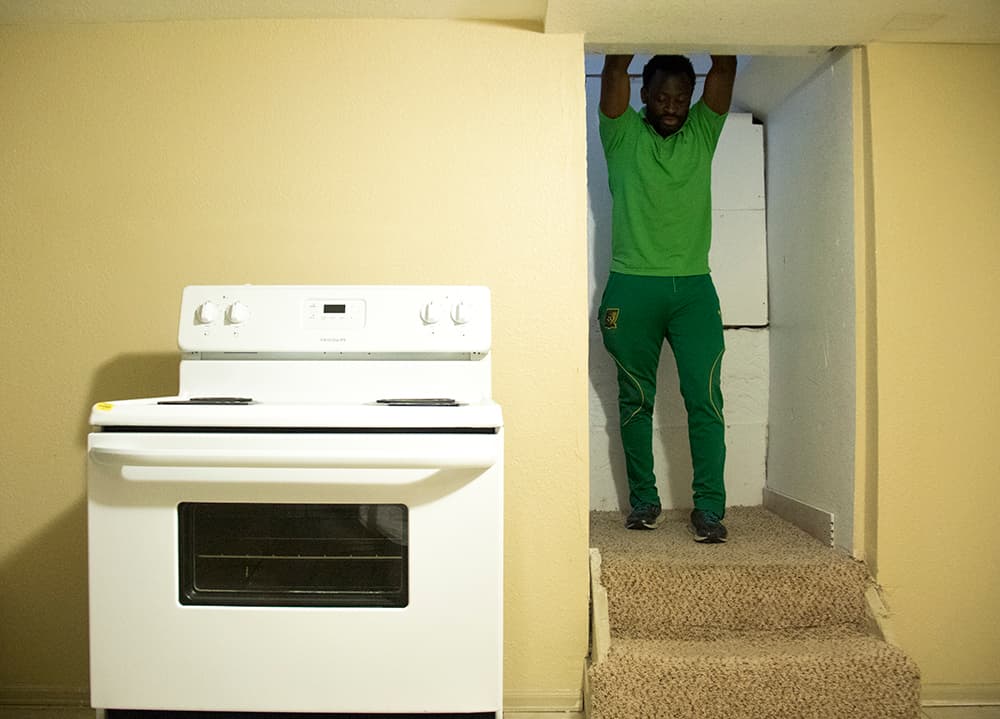
At the edge of Costa Rica, Fon paid a local man $20 to take him across the border.
What followed was his first encounter with law enforcement. After a day of walking, he and his companions were stopped by police, who suspected they were smuggling drugs and arrested them. But in Costa Rica, as with many countries on this route, police do little more than shuttle you back to the last country.
He was detained for a day before the police took him back to Panama.
"They said, 'Don't come back,'" Fon said.
So the next day he tried again, avoiding the main road by hiring a man to take him across a river. This time he made it to a town on the other side.
After that it was easy, he said.
"I caught a bus to the city -- frontera." Four countries down, four to go.
In Nicaragua, he hiked through the jungle with a group of Nepali travelers that he met by accident.
"What I have discovered is there are many roads to America," he said. "In this journey you meet guys from Ghana, Nigeria, Somalia ... India, Pakistan, Bangladesh, Nepal."
After eight hours in the forest, Fon and his new companions were arrested and brought to a migrant camp, the first of several where he would stay along the way. He describes it as prison, but compared to the places he was detained in the U.S. it wasn't that bad. It was somewhere he could rest, play soccer on the grass and prepare for his next northbound push.
Officials in camps offer migrants a deal: You have 30 days to declare asylum here, or you must leave. Migrants receive paperwork that acts as their identification, then are sent on their way.
And so Fon continued north. Three countries to go.
Fon finally made his way to Tijuana, where he faced authorities and another migrant camp while crossing Mexico.
At the border he watched endless lines of travelers drive past checkpoints into the United States.
"I felt I'd achieved my dreams, just being in Tijuana," he said.
He could see McDonald's in California just across the fence. At the end of a very long journey, it was as if he were finished, but Fon was not prepared for the struggle to actually cross the border. He had no idea what to expect next.
He waited at the asylum seekers' border entrance for 24 hours straight. He spent the night in line, on the ground. Nobody came to man the station. Instead of waiting another day he made his way to east to a smaller crossing point where he found personnel to receive him.
He approached the border guards and told them he was seeking asylum. Then he was arrested, stripped and handcuffed.
"They arrested me in all the other countries, but they didn't put me in chains," he said. "In America, it's hardcore. It's like I committed a crime."
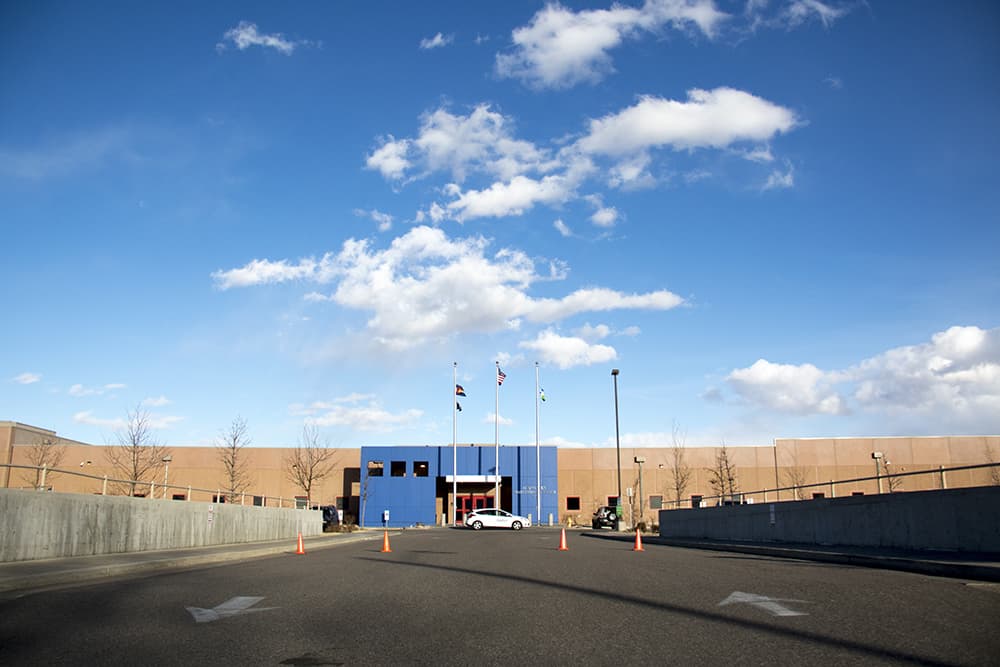
The dangerous three-month trek Fon made to the border was suddenly dwarfed by his seven-month stay in American immigration prisons. He spent about four weeks in lock-ups in California and Arizona before being sent to the GEO Group's Aurora Detention Facility. There he waited to hear if he would be granted asylum.
Fon was finally granted legal entry into the U.S. with the help of a Cameroonian lawyer who worked on the promise of eventual repayment. His re-emergence was greeted by cheers from across the internet from friends who thought he was dead.
Fon would have had nowhere to go on the day of his release if not for the kindness of strangers.
He was offered a bed at Casa De Paz, a hospitality house that gives newly-released immigrants a place to stay as they make their way to other parts of the country.
The nonprofit, funded by a volleyball league, has served more than 800 immigrants leaving GEO since it opened in 2012.
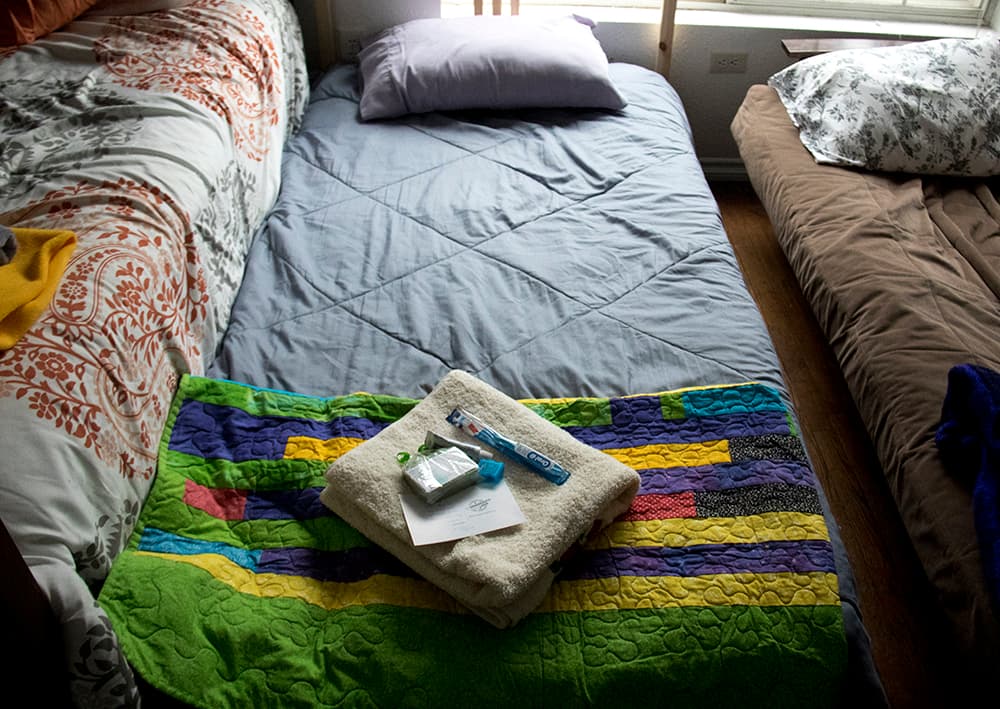
It wasn't long after his release that Fon's charm landed him in the good graces of Sarah Jackson, Casa's founder. She eventually asked him to be a live-in volunteer, which helps him save money as he works now to bring his family to America.
Now nearly every night he greets new guests at Casa and helps them make their way to greener pastures.
Upon their release, guests are greeted with a ride to a little warm house not far from the detention facility. There Fon offers them water and a meal, fresh clothes and a clean bed. He usually helps arrange transportation and coordinate volunteers to get people on their way to DIA or the bus station.
Like the travelers he encountered on his trek through Central America, these guests come from all parts. People expect to hear about migrants from Guatemala or Mexico struggling to enter America, but Casa has housed people from so many more places. Travelers from every continent (except Antarctica) have rested their heads here after they left the Aurora immigration lockup.
The Department of Homeland Security reported that asylum applications have skyrocketed from 40,000 in 2011 to more than 100,000 in 2015. An estimated 11,000 Africans arrived at the southern U.S. border between January and October of 2016, according to the Migration Policy Institute, a think tank, "overwhelming the capacity of U.S. authorities to process their asylum cases." This case load was compounded by an additional 4,000 Haitians. In December, Boulder Weekly reported that the population inside the Aurora detention center had doubled as a result of these forces.
You must be present in the U.S. to ask for asylum, so people like Fon take enormous risks to get here when they flee conflict at home.
But to Fon, those months of struggle were well worth it. Sitting in Casa De Paz he recounted his journey as if it were a grand adventure. He smiled and said, "Now I'm thinking this is the best decision I ever made in my life."
Fon still plays table tennis even though he doesn't need to anymore.
A month ago he landed a full-time job at the CU Anschutz Medical Campus, so he finally has steady income. And the internet blackout was lifted, so it's easier for him to connect with his wife and daughter. He spent three hours video chatting with them last month when service was restored.
Instead, these days Ace offers something else: a little Colorado family, united by a love of the game. Last Tuesday, at the weekly contest to crown Denver's table tennis king, Fon celebrated his 31st birthday with his friends.
Settled and secure in Aurora, he can now shift his focus to bring his wife, daughter and parents to join him in his new life. And beyond their safety, he sees his deliverance to the United States as a chance to spread awareness about the conflict in Cameroon.
His good fortune is an opportunity "to be alive," he said, "and to speak."
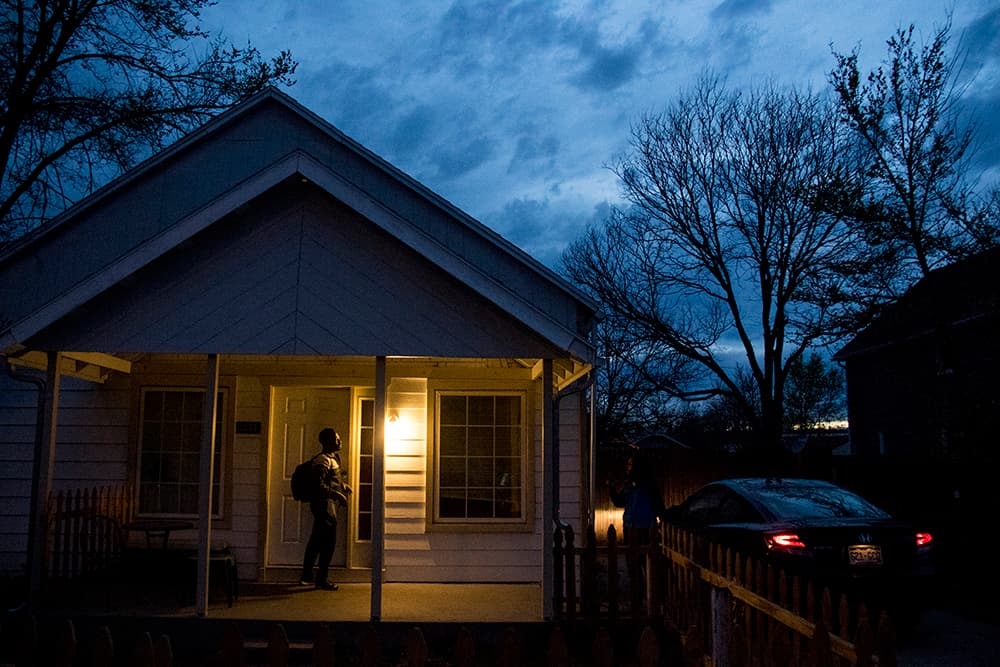
Someday he hopes to see English Cameroon become a free and independent state. Perhaps then he could safely return to the place where he grew up, he said. But in the meantime, Fon's perfectly content presiding over Denver as the city's table tennis king.












